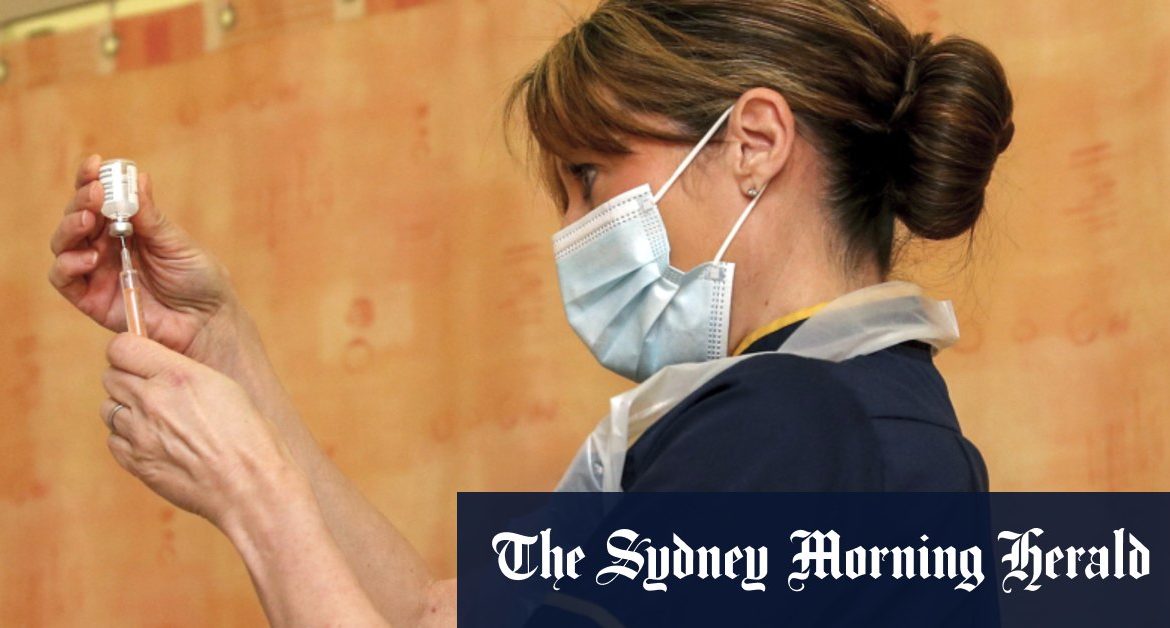A further 830 deaths were recorded on Tuesday, bringing the overall official toll to 76,305. About 45 per cent of victims have died since the start of October.
The outbreak is so severe and widespread that the best chance of reducing how many people are infected, hospitalised and killed by the pandemic now rests on the rollout of vaccines.
However supplies of the UK’s two approved products – one by the University of Oxford and AstraZeneca and another developed between BioNTech and Pfizer – will take months to ramp up, forcing health officials to alter the dosing schedule so that more people can get the jab sooner.
The window between receiving the first and second shot will increase from three weeks to three months to make scarce supplies go further – an approach BioNTech and Pfizer have warned was never tested during trials.
Whitty agreed the decision had stoked a “vigorous scientific debate”. Some experts – particularly in the United States – have warned that delaying the booster shot could increase the risk of vaccine-resistant mutations.
Loading
“There are obviously some unknowns and there’s quite a vigorous scientific debate about those unknowns,” Whitty said.
“One of the things people have raised is a theoretical risk that by having this longer gap you could actually lead to a slightly increased risk of an escaped mutant. That is a real worry but quite a small real worry within the system.”
He said Britain’s scientists were of the general view that the size of this risk was small when measured against the benefits of being able to effectively double the number of people given a first jab over the coming months.
“Clearly if we had infinite vaccine we might have taken different approaches but we don’t,” he said.
“At this point, for the next three to four months, the number of vaccines we have available is going to constrain our ability to get through the 25 to 30 million [most vulnerable people] we must do.”
Regent Street in central London after the capital entered its third lockdown since the start of the pandemic. Credit:Bloomberg
BioNTech and Pfizer warned there was “no data” to support the UK’s decision to delay the booster shot. But health experts in the UK have supported the decision as a practical response to the growing crisis.
Denmark this week approved a lag of up to six weeks between the first and second shots of the Pfizer-BioNTech vaccine.
Chief scientific adviser Sir Patrick Vallance added that the global vaccine rollout would put “evolutionary pressure” on the virus.
“So it’s true that as you get to very high levels of vaccination the virus is then struggling to work out what to do and that is eventually going to become an issue and the virus probably will mutate at that point and that will mean different vaccines will be needed in due course,” he said.
Loading
The UK recorded another 61,000 new infections on Tuesday and there is no evidence that the second wave is slowing like it has in the rest of Europe.
England, Wales, Scotland and Northern Ireland have all imposed national lockdowns to lower transmission but the vaccine rollout will be key to lowering soaring hospitalisation rates.
Johnson on Monday (local time) said the top four priority groups to receive the vaccine – some 14 million people – should have been offered their first jab by mid-February but on Tuesday warned there were “a lot of caveats, a lot of ifs built into that”.
Whitty said the timeline was “realistic but not easy”.
“The National Health Service is very determined to do this but that does not make it easy.”
Bevan Shields is the Europe correspondent for The Sydney Morning Herald and The Age.
Most Viewed in World
Loading







